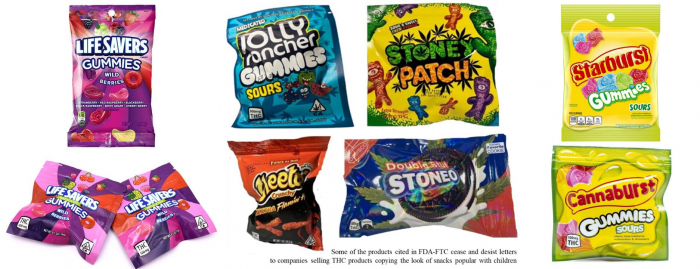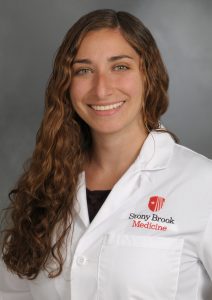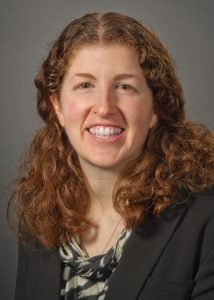Suffolk County hospitals see increased accidental pediatric pot consumption

Children are getting into their parents’ supplies of edible marijuana, leading to an increase in illnesses and emergency room visits.
Stony Brook Pediatric Hospital treated 14 children in 2022 and 13 in 2021 — up from about one or two a year before 2020.

“In the last two years, we’ve seen very high numbers,” said Dr. Candice Foy, a pediatric hospitalist at Stony Brook Children’s Hospital.
The accidental consumption of marijuana among children has increased throughout the country. A study published in the journal “Pediatrics” indicates that calls to poison control centers for children five and under for the consumption of edibles containing tetrahydrocannabinol, or THC — the main ingredient in the cannabis plant — rose to 3,054 in 2021 from 207 in 2017, with over 95 percent of the children finding gummies in their homes.
Amid an increase in adult use of edible gummies containing marijuana, children of a wide range of ages have mistaken them for candy, leading to symptoms that trigger medical concerns from their parents.
Children with THC in their system can have low blood pressure, high heart rates, lethargy and sleep for prolonged periods, Foy said.
One child required a machine to help breathe.
Dr. Jennifer Goebel, emergency room doctor at Huntington Hospital, said the hospital recently saw children who were dizzy and not acting appropriately.
When pediatric patients accidentally consume pot edibles, doctors also need to consider what else they might have in their system, Goebel added.

Significant exposure can “lead to severe hyperactive behaviors, slowed breathing and even coma,” Dr. Gregson Pigott, Suffolk County Health Commissioner, explained in an email.
The health effects of marijuana can last 24 to 36 hours in children. The response may vary based on the amount ingested, the size of the child and metabolic factors, Pigott added.
Unlike naloxone, which health care providers can administer to counteract the effect of narcotics, doctors don’t have the same resources available with accidental marijuana ingestion.
Doctors opt for supportive care. A nauseous child could receive anti-nausea medication, while a child sleeping and not eating or drinking can receive intravenous fluids.
Typically, doctors observe children who consume marijuana for several hours, often releasing them to return home once the symptoms subside.
Hospitals are required to call child protective services during such an incident. Investigators usually find that such consumption is incidental, as parents sometimes leave their edibles in the wrong location.
“A lot of times, CPS will go in there” and, after checking the home, “will close the investigation,” Foy said.
Doctors and local officials urged people who consume such edibles themselves either not to keep them in the house or to put them in places far from other candy or food, such as in an inaccessible spot in the back of a closet.

“The Department’s Office of Public Information has issued warnings about keeping edible gummies out of the reach of children through its social media channels,” Pigott explained in an email. “In addition, the New York State Office of Addiction Services and Supports and our partners in prevention promote safe keeping of all THC products, including edibles, out of reach and in secure child safe storage,” such as a lock box.
Goebel cautioned that children are adept at getting to products that appeal to them, mainly if the packaging makes them look like candy.
Many of the pot-related medical issues are “accidental,” Goebel said.
Hospitals have seen a range of children with marijuana symptoms, from as young as one year old to 11, with the vast majority falling between two and four years old, Foy said.
“I don’t think it’s something that a lot of people think about the same way they think about protecting their children from bleach and other chemicals commonly found” in the home, she said. It’s important to “get the message out” and ensure “people are talking about this.”
The Suffolk County Department of Health Services Office of Health Education offers curriculum and teacher training to public and private schools at no cost. The lessons address behaviors that lead to morbidity and mortality in the young, including intentional and unintentional injuries, such as injury caused by children ingesting edible gummies or other edible-infused products, Pigott wrote.
“During parent workshops, we show the similarity between real food items and the THC-containing items that look like the food item to highlight how deceptive and easy it is to mistakenly ingest cannabis-laden products,” he added.






